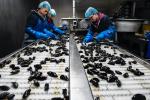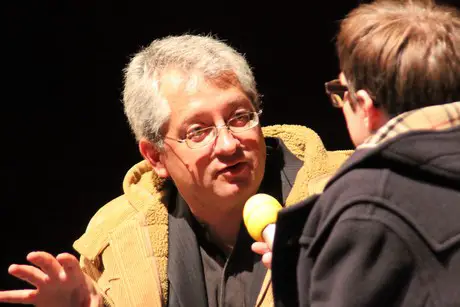Erich Fromm on Being Productive
Are we active, or just busy?
For Erich Fromm, true activity means to fully use one’s talents and abilities in order to grow as a person. The mere display of being busy is, in Fromm’s opinion, not a sign of productive work. Modern society, which relies on hierarchy and alienated work, tends to favour busy-ness over productive activity.
This article is part of The Ultimate Guide to the Philosophy of Erich Fromm.
If you like reading about philosophy, here's a free, weekly newsletter with articles just like this one: Send it to me!
This is the psychologist and philosopher Erich Fromm writing about what it really means to be an active person. For Fromm, being active does not mean being busy.
The Happier Society. Erich Fromm and the Frankfurt School.
In this book, philosophy professor, popular author and editor of the Daily Philosophy web magazine, Dr Andreas Matthias takes the reader on a tour, looking at how society influences our happiness. Following Erich Fromm, the Frankfurt School, Aldous Huxley and other thinkers, we go in search of wisdom and guidance on how we can live better, happier and more satisfying lives today.
This is an edited and expanded version of the articles published on tis site.
Get it now! Click here!

Erich Fromm on activity and busyness
Modern busyness (and business) is all too often only about showing off how busy one is, about “hustling,” which, interestingly, today has become a synonym for freelance work.
But how productive is such busyness really?
For Fromm, to be active…
In this sense, Fromm’s “activity” is similar to what Richard Taylor called “creativity,” and what Aristotle would call flourishing: the use of one’s mind and one’s talents, of one’s whole personality, in order to grow and become a better, richer person, one who is able to give more to others rather than take.

Richard Taylor (1919–2003) thought that it’s creativity that makes us feel happy and fulfilled. According to Taylor, a life lived without exercising one’s creativity is a wasted life.
Alienated activity and productive work
Unfortunately, work in today’s offices and factories, in our highly hierarchical and automated business world, is not like that. Most often, we feel separated from the fruits of our labour, and the work becomes something we dread, an experience that is forced and empty of meaning for us:
Non-alienated activity is a luxury in today’s world of work. Perhaps artists can experience it, and sometimes scientists or small artisans in their workshop, where they create a product from start to finish:
Notice how similar this is to the distinction that Hannah Arendt makes between labour, work and action!

A factory: Alienated work according to Erich Fromm. Photo by Remy Gieling on Unsplash.
Many of the problems that we have as a society today are, for Fromm, a result of forcing human beings to live their lives in an unproductive, alienated way. Without the pleasure and the meaning that comes from truly productive work, we lose our interest in life and work, we don’t feel personally responsible for our work, we produce inferior products that damage the environment and ourselves, and eventually, we descend into cynicism about life, or we try to find artificial excitements to replace the meaning of life that we lost.
Fromm wrote this in 1976. Today, we see more and more clearly that unchecked capitalism and our consumerist society do not only destroy the planet we live on, but also us as human beings. Anxiety, mental disorders, hate crimes, terrorism and feelings of helplessness and the meaninglessness of life are on the rise everywhere. The pandemic has put these phenomena into an even harsher light. Lockdowns have often forced us to sit back and to reflect on our lives more than we were used to, and often more than we could handle.

What is Alienation?
One of his best known concepts of Marxism is the idea of “alienation” that describes how human beings get estranged from their work.
But Fromm is not out to scare us. He was a humanist, which properly means: someone who believes in the human spirit. It was his belief that we can change both ourselves and the societies we live in. If we decide to create a better world for us and our children, we can. We just have to take back control from those who profit from our busyness, from our alienated work, and we have to demand to be treated like what we really are: free human beings, creative, powerful, and able to truly rule the world in peace and respect for all life.
◊ ◊ ◊

Andreas Matthias on Daily Philosophy:
Return to The Ultimate Guide to the Philosophy of Erich Fromm.
Thanks for reading! Do you agree? Leave a comment below!





